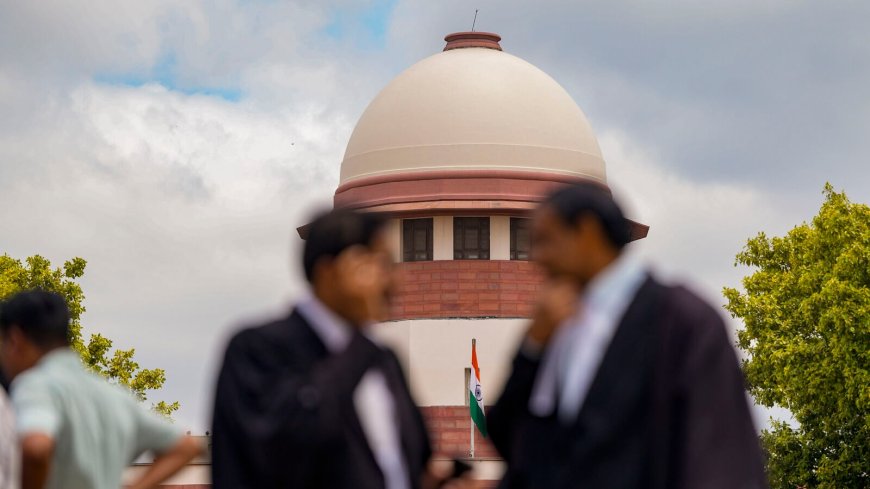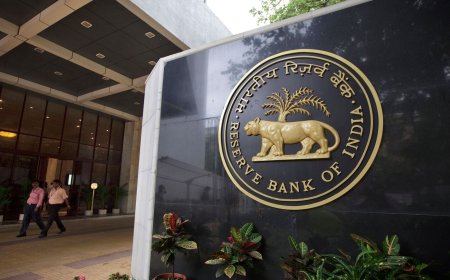Mint Explainer: What’s at Stake as Bar Council Reviews Its Rules on Foreign Law Firms
The Bar Council of India is reviewing its rules on foreign law firms. Here's what the review means for India's legal ecosystem, trade ties, and investor landscape.

Introduction
India's legal fraternity is abuzz as the Bar Council of India (BCI) takes a fresh look at its rules governing the entry and operations of foreign law firms. The latest deliberations mark a pivotal moment in the evolution of India's legal services market, which has long remained protected from global competition. If the review leads to any material change, it could have deep implications for both domestic law practices and foreign firms seeking access to one of the fastest-growing economies in the world.
Background: The BCI’s Current Stand
In March 2023, the BCI had issued guidelines permitting foreign lawyers and law firms to advise clients on non-Indian laws, primarily in a non-litigious capacity, on a "reciprocal basis." However, this move faced resistance from several quarters, leading the BCI to clarify that such permissions were not blanket approvals but conditional relaxations subject to strict registration and operational guidelines.
Now, over a year later, the BCI is revisiting the framework amid rising international pressure, growing demand for cross-border legal expertise, and evolving trade negotiations, particularly under the India-UK Free Trade Agreement (FTA).
What’s Being Reviewed?
The core issue lies in whether foreign law firms should be allowed to:
-
Establish offices in India
-
Offer legal advice on Indian law in collaboration with domestic lawyers
-
Represent clients in Indian courts or tribunals
Currently, foreign lawyers are barred from appearing in court and from offering legal services on Indian law. The BCI’s ongoing consultations are expected to revisit the contours of these restrictions and clarify the scope of permissible advisory work.
A senior BCI official, on condition of anonymity, said:
“The Council is examining a balanced path that protects the domestic profession while also facilitating India’s global legal integration.”
Why the Review Matters
1. Opening Up the Legal Market
India’s $1.9 trillion economy is increasingly global in scope, with inbound and outbound M&A, arbitration, and infrastructure deals requiring multi-jurisdictional legal advice. Opening the market could benefit Indian corporates, who currently must hire foreign firms via overseas offices, often at significantly higher costs.
“Indian clients deserve seamless legal service integration. Restricting foreign law firms only leads to higher legal bills and fragmented advisory models,” said Nishith Desai, founder of the law firm Nishith Desai Associates.
2. Pressure from Trade Partners
Several countries, including the UK, the US, and Australia, have long lobbied for greater access to India's legal market. The UK in particular is eyeing liberalization of legal services as a key demand under its FTA negotiations with India. Legal services represent a significant export sector for the UK, and any reciprocity would benefit Indian law firms abroad as well.
3. Indian Legal Ecosystem at a Crossroads
India has over 1.4 million registered lawyers. Critics argue that allowing foreign firms could threaten jobs, especially among small and mid-sized Indian firms. Proponents, however, suggest it would spur healthy competition, enhance legal standards, and create new opportunities through partnerships and knowledge exchange.
“There is a fear factor, but the reality is global exposure can enhance our profession. Collaboration, not confrontation, should be the goal,” opined Indira Jaising, senior advocate and former Additional Solicitor General of India.
Concerns Among Domestic Law Firms
Not all stakeholders are welcoming. A number of local law bodies and associations are lobbying against liberalization. Their concerns include:
-
Fee undercutting by foreign firms with deeper pockets
-
Talent poaching from Indian firms
-
Unequal regulatory compliance and lack of reciprocity
“Unless we have a watertight reciprocity clause and a strong regulatory watchdog, Indian law firms will be at a disadvantage,” said Rajeev Dhavan, a constitutional law expert.
The BCI’s challenge lies in balancing these fears with the need to modernize and align with global best practices.
Comparative Perspective: What Other Countries Do
Countries like Singapore, Japan, and South Korea have gradually liberalized their legal markets by adopting phased and reciprocal entry norms. In most cases, foreign firms can offer international law advice but need local partners to provide domestic law services. This hybrid model is often cited as a template India could adopt.
What Investors and Businesses Need to Know
The review has significant ramifications for multinational corporations, investment funds, and startups operating in India. Easier access to global legal expertise could simplify compliance, boost investor confidence, and reduce transaction delays.
“Cross-border deals, especially in fintech, energy, and healthcare, are legally complex. Legal integration can reduce friction and promote ease of doing business,” said Ruchika Sharma, legal head at a global VC fund.
Outlook: What Happens Next?
The BCI is expected to submit its revised proposals by late July 2025, following stakeholder consultations. While no immediate change is guaranteed, industry observers expect a phased liberalization approach—possibly starting with allowing foreign law firms to set up representative offices and engage in non-Indian legal advisory.
This shift could herald a new chapter for India’s legal services market, one that embraces both tradition and transition.
As the Bar Council re-evaluates its stance on foreign law firms, India stands at a crossroads. The final decision will shape not only the future of legal practice in India but also the broader trajectory of its economic globalization. While the path ahead is complex, it is undeniably crucial.
What's Your Reaction?
 Like
0
Like
0
 Dislike
0
Dislike
0
 Love
0
Love
0
 Funny
0
Funny
0
 Angry
0
Angry
0
 Sad
0
Sad
0
 Wow
0
Wow
0













































































